Strictly Personal
Before Nigeria’s 18 March elections, By Reuben Abati
Published
1 year agoon
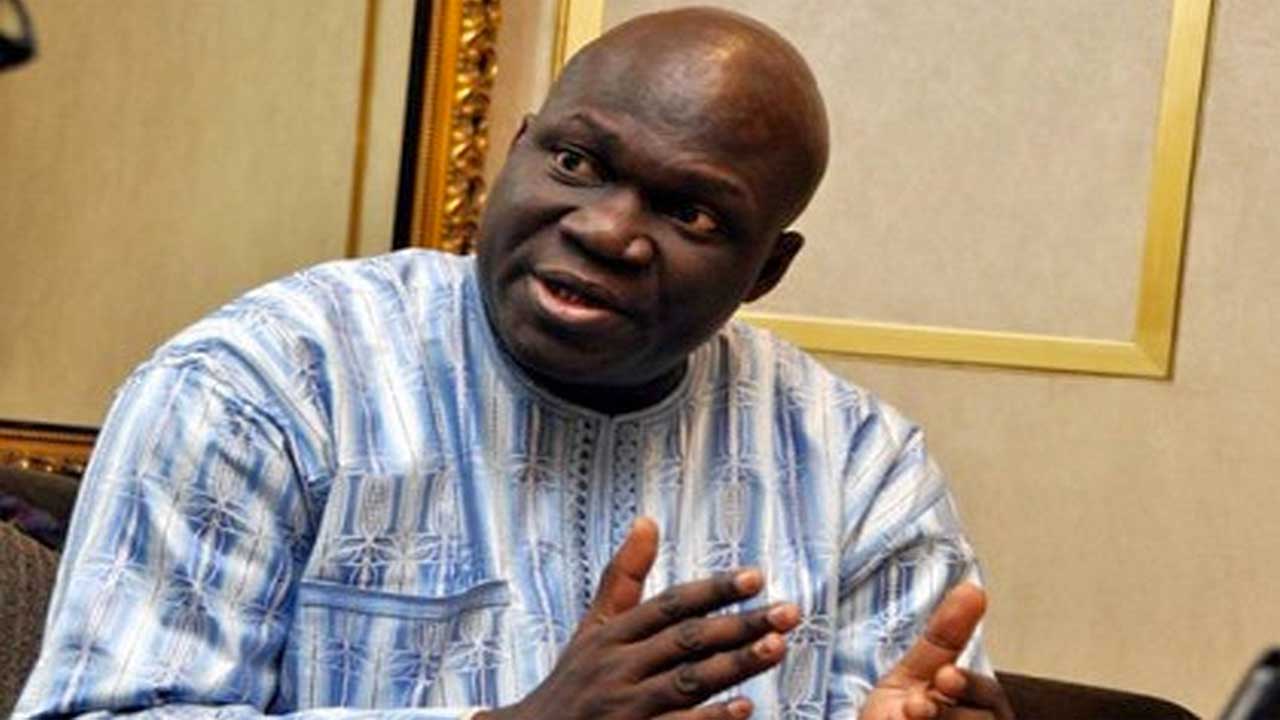
After the 25 February presidential and National Assembly elections, now heavily disputed, Nigeria goes to the polls again on 18 March to elect governors and members of state legislatures in 28 out of 36 states of the Federation. There would be no state elections in Kogi, Anambra, Ondo, Imo, Edo, Osun, Bayelsa and Ekiti which are in the off-cycle election belt. However, this weekend’s elections were meant to hold last Saturday, March 11, but the polls had to be rescheduled on account of the disputes that arose from the 25 February Presidential election and the orders given by the Court of Appeal acting as the Presidential Election Petition Tribunal. Three political parties – the Peoples Democratic Party (PDP), the Labour Party (LP) and the All Progressives Congress (APC), acting in self-defence in its case, had gone to court to seek permission to be allowed to inspect the materials used for the election by the Independent National Election Commission (INEC) which announced the Presidential candidate of the All Progressives’ Congress (APC), Asiwaju Bola Ahmed Tinubu as winner of the election with 8. 974, 726 million of total votes cast. The Presidential candidate of the People’s Democratic Party (PDP), Atiku Abubaar, and Mr. Peter Obi of the Labour Party had challenged the results as declared by INEC. The court ruled in their favour on Friday, 3 March. By Tuesday, March 7, the ruling APC and its candidate, now president-elect, also sought the leave of court to have access to the election materials. INEC also approached the court requesting that it should vary the order it gave earlier permitting PDP, LP, to inspect election materials, by granting it leave to reconfigure the Bi-Modal Verification Accreditation System (BVAS) ahead of the Gubernatorial and State legislature elections scheduled for 11 March.
Counsel to INEC had told the Presidential Election Petitions Tribunal that their client would need a minimum of five days to reconfigure the BVAS. As it turned out, the two other matters were determined on Wednesday, 8 March. The court granted INEC’s request to reconfigure the BVAS, but it did not rule that this should have any effect on the March 11 date. The Court granted APC its prayers. But in yet another matter, it refused to grant the Labour Party its request to inspect the INEC data base, and oversee the reconfiguration of the BVAS. On its own, after a review of the Court’s ruling, INEC announced that “it was far too late” for the reconfiguration of BVAS to be concluded within two days in over 170, 000 polling units nationwide. Consequently, the Commission rescheduled the Gubernatorial and state Assembly elections till March 18. INEC promised that it would obey the orders of court: grant the petitioners access to inspect election materials, and also upload data to its back-end server and make Certified True Copies of same available to all parties in the matter.
It is now election week again, as Nigerians are expected to troop out this Saturday to participate in state elections. They would be doing so against the background of the drama generated by the elections of 25 February. As various international observers have pointed out: Chatham House, Ambassador Mark Green, Ambassador Johnnie Carson, the US Observer Mission, Financial Times, Bloomberg, New York Times, South Africa’s Broadcasting Corporation (SABC), Reuters, YIAGA Africa, The Guardian UK, BBC, Chinese News Agency, Washington Post, Nigeria Civil Society Situation Room, the African Union Election Observation Mission to Nigeria, ECOWAS, EU, UN, and the West African Elders Forum (WAEF) among others, the emergent consensus was that whereas the people of Nigeria showed much zeal and determination towards the polls, the entire exercise fell short of the people’s expectations. In other words, INEC disappointed the people. I have already offered a catalogue of the sheer incompetence and poor performance put up by INEC in an earlier commentary (see “Nigeria: 25 February and the Aftermath,” Tuesday, 7 March). Things have gone so bad that in fact the People’s Democratic Party led by its Presidential candidate and other party leaders had to stage a protest from the party’s headquarters to the Headquarters of INEC, on Monday, 6 March. They asked for a cancellation of the election, and submitted a protest letter. A week later, the Labour Party in a statement issued by its Chief Spokesperson, Dr Yunusa Tanko, is also threatening to call out its supporters on a peaceful protest to challenge INEC’s refusal to obey the order of Court to allow the party to inspect election materials. Tanko insists that the court order was duly served on INEC and a reminder was also sent to it. But whereas INEC is busy reconfiguring the BVAS, it has ignored other court orders. It has failed to keep its promise. Other political parties are aggrieved. It must be noted that on three previous occasions since 1999 that elections were postponed, Nigeria usually cited either security or logistics reasons: 2011, 2015, 2019, but in 2023, INEC’s excuse is that it has to reconfigure its equipment!
The biggest calamity in Nigeria’s democratic process this time around is the embarrassing conduct of the electoral umpire. The people have lost trust in INEC. The institution suffers a credibility crisis. The worst thing that can happen to any public institution is to end up in the eyes of the same people it is established to serve as a fibbing, clumsy, unreliable institution. Between 25 February and now, INEC has broken virtually all the promises it made to the people of Nigeria, including the ones its Chairman rolled out for effect on the floor of Chatham House in London! INEC’s much-trumpeted confidence in the deployment of technology as enabled by the law and its own guidelines has been shown to be nothing more than an exercise in hypocrisy. On 25 February, results from polling units were transmitted to the INEC portal called iREV, but not Presidential election results from the same polling units. More than a week after the elections, INEC could not fully load results unto its portals. Many voters could not get their Permanent Voter’s Cards, the same cards that have been sighted in bushes, forests, in the hands of foreigners and shadowy apartments across the country. INEC could not distribute its own PVCs! The Court of Justice Obiora Egwuatu has now ruled, 9 March, in favour of two persons: Kofoworola Olusegun and Wilson Allwell that they should be allowed to vote with their Temporary Voter’s Cards (TVCs), but although the ruling is in personam, the matter having not been filed in a representative capacity, INEC says it will appeal the Federal High Court ruling. Since the return to democratic rule in 1999, no other electoral process has been this confusing and uncertain.
Those who are familiar with the subject argue that the postponement of the state elections alone comes with “staggering economic loss.” It could also harm voter enthusiasm and voter turn-out rates. The perception that the elections could be rigged at will is a major issue. Galaxy Backbone, Nigeria’s ICT services provider owned by the Federal Government, has confirmed that it had to fend off over 200 cyberattacks during the Presidential and National Assembly elections. Perception is important in any electoral process. Even IT experts believe that INEC is lying when it says it wants to reconfigure BVAS – the same INEC that cannot figure out whatever “technical glitches” that sabotaged its operations more than two weeks after the fact.
Every aggrieved party has been advised to go to the courts, and seek redress through legal and constitutional means. President Muhammadu Buhari has also expressly declared that there is no plan to annul the Presidential election – that is impossible, we are in a democracy – not under military rule. What anyone can hold on to is the general admonition that INEC should by now have carried out a thorough review of the elections of 25 February, to understand what worked, what did not, what went amiss, and to learn the relevant lessons and ensure that these are used to deliver a much better process on 18 March. But do we ever learn in Nigeria – a country where amnesia is a national malady and rascality seems at once genetic and contagious? INEC is expected to rebuild the people’s confidence. It is in the best interest of everyone that INEC succeeds on Saturday, 18 March. The errors of 25 February have pushed the people to a corner where they are poised for war in various parts of the country. The people are determined more than before to defend their votes. Gubernatorial and state legislature elections are mainly local elections, and understandably, they are invested with a higher dosage of emotionalism. The tension in the country is at an all-time high. The thugs who snatched ballot boxes two weeks ago may find that it won’t be easy to do so this week. The battle will be tough and fierce in some of the states: Edo, Delta, Enugu, Abia, Rivers, Kaduna, Kogi, Oyo, and especially Lagos.
As was the case in the 25 February elections, ethnicity, religion, power and territory would be big issues. Against all odds, after the vote count in that process, Labour Party which was accused of not having a party structure ended up with more than 25% of the votes in 12 states including the Federal Capital Territory, with six winners in the Senate, and 34 in the House of Representatives, coming third in the Presidential Election, which the party says was rigged against it. The Labour Party would seek to consolidate on its 25 February election victories this week. Delta, Enugu, Abia, Rivers, Kaduna, Benue would be major battle grounds for the party. And Lagos in particular, where the Labour Party won majority votes and would want to repeat the feat. The President-elect was Governor of Lagos for two terms. He is the Godfather of the ruling APC in Lagos. To beat him and his party’s incumbent Governor in Lagos is not impossible as the Labour Party has shown, but to do so twice will be quite a feat. And that is why there has been so much desperation in the campaigns in Lagos in the lead up to 18 March. The APC has played the ethnic card against the candidate of the Labour Party in a most vicious manner. His offence is that his mother is Igbo. He is also married to an Igbo woman. His grandmother is also said to be Igbo. And he bears Patrick. He bears Chinedu. He speaks Igbo. The ethnic irridentists of Lagos politics have been swearing that Lagos belongs to the Yoruba, it is not a no-man’s-land, and anyone with a small drop of Igbo blood would not be allowed to become Governor. They forget that the Rhodes-Vivour family has been a Yoruba family in Lagos for more than five generations. And those who voted for the Labour Party in Lagos State on 25 February were not necessarily Igbos. They cut across all ethnic groups, and they were probably mostly Yorubas. Those who are targeting Igbos must desist from doing so. They must remember Rwanda, where the politics of ethic hate resulted in a massive blow-out. If they don’t know where Rwanda is, let them remember how ethnic politics catalyzed Nigeria’s civil war.
And for the benefit of those who think Igbo votes would be frustrated by burning markets dominated by Igbos in Lagos, I draw their attention to the Lagos Area Council election of 1950. As reported in the Daily Times of Wednesday, 18 October, 1950 to wit: “ELECTION RESULTS: Demo-Labour Alliance Wins: 18 Seats Against Area Council’s 6”. The Demo-Labour Market Alliance won 18 out of the 24 seats in the new Lagos Town Council. Out of these, there were non-Yoruba winners: Nduka Eze in Ward C, Mbonu Ojike in Ward D, Anyiam F. and Gogo, C.N in Ward F. Before then, Dr. Nnamdi Azikiwe, an Igbo man represented Lagos between 1947 and 1951 in the Legislative Council of Nigeria. It was in this same area called Lagos that Emmanuel Ebubedike from Ozubulu in present-day Anambra State won election in the First Republic to represent Ajeromi-Badagry-Ifelodun in the Western Region House of Assembly. Each time I cite this example, I am reminded that it was Ebubedike who first snatched the Mace in the Western House on May 22, 1962 and turned it into a weapon of assault. He didn’t grab the mace because he was Igbo. Everyone had literally lost their head in the Western Region on that occasion.
In more recent times, a certain Oghene Emma Egho represented Amuwo-Odofin Federal Constituency in the House of Representatives on the platform of the PDP in 2015. The truth is that Lagos is a cosmopolitan melting pot of cultures, tropes and influences and its diversity and accommodative, liberal temper is part of the city’s mystique and essence. It has been reported that some acclaimed Lagos “omo oniles” – the self-styled land-owning families of Lagos are beginning to revoke lease agreements to remind non-Lagosians that Lagos belongs to its indigenous people! It has also been reported that some traditional rulers in Ibeju-Lekki are withdrawing traditional titles that they had conferred on some Igbos in their quarters. All of this just because a Yoruba son whose mother happens to be Igbo wants to be Governor? Absolutely ridiculous. There are no illegitimate children in Africa! It is a good thing that Governor Babajide Sanwoolu, the incumbent Lagos Governor has publicly decried ethnic politics. Other stakeholders in Lagos politics should do the same. The President-elect, Asiwaju Bola Ahmed Tinubu, should step forward also to let everyone know that the people of Lagos, both indigenes and non-indigenes have the right to vote for the leaders of their choice.
The security agencies have their work cut out for them. They were conspicuously ineffectual on 25 February. The police have been given money and equipment and the necessary support they asked for from President Muhammadu Buhari. The stakes may have been high on 25 February. They would be higher on 18 March. It goes without saying that the international community is watching. Nigeria’s success is critical for the stability of neighbouring countries and the larger project of democracy, good governance and accountability in African states. INEC and other agencies involved in #NigeriaDecides2023 should not turn Nigeria into the laughing stock of Africa.
Reuben Abati, a former presidential spokesperson, writes from Lagos.
You may like
-


Nigeria’s NGX Group enters into strategic investment partnership with Ethiopian Securities Exchange
-


Nigeria: 118 prison inmates escape after rainstorm destroys facility
-


Nigeria’s antigraft agency EFCC may try 300 forex racketeers
-


Nigerian govt shuts Chinese supermarket over ‘no-Nigerian shopper’ allegation
-
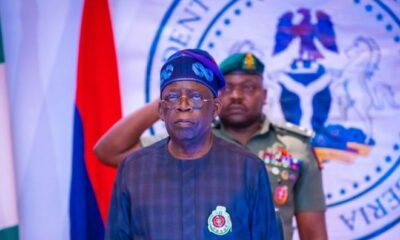

Nigeria: President Tinubu identifies illegal mining as source of terrorism financing
-


Nigeria wants $2.25 billion World Bank loan
Strictly Personal
Air Peace, capitalism and national interest, By Dakuku Peterside
Published
1 week agoon
April 16, 2024
Nigerian corporate influence and that of the West continue to collide. The rationale is straightforward: whereas corporate activity in Europe and America is part of their larger local and foreign policy engagement, privately owned enterprises in Nigeria or commercial interests are not part of Nigeria’s foreign policy ecosystem, neither is there a strong culture of government support for privately owned enterprises’ expansion locally and internationally.
The relationship between Nigerian businesses and foreign policy is important to the national interest. When backing domestic Nigerian companies to compete on a worldwide scale, the government should see it as a lever to drive foreign policy, and national strategic interest, promote trade, enhance national security considerations, and minimize distortion in the domestic market as the foreign airlines were doing, boost GDP, create employment opportunities, and optimize corporate returns for the firms.
Admitted nations do not always interfere directly in their companies’ business and commercial dealings, and there are always exceptions. I can cite two areas of exception: military sales by companies because of their strategic implications and are, therefore, part of foreign and diplomatic policy and processes. The second is where the products or routes of a company have implications for foreign policy. Air Peace falls into the second category in the Lagos – London route.
Two events demonstrate an emerging trend that, if not checked, will disincentivize Nigerian firms from competing in the global marketplace. There are other notable examples, but I am using these two examples because they are very recent and ongoing, and they are typological representations of the need for Nigerian government backing and support for local companies that are playing in a very competitive international market dominated by big foreign companies whose governments are using all forms of foreign policies and diplomacy to support and sustain.
The first is Air Peace. It is the only Nigerian-owned aviation company playing globally and checkmating the dominance of foreign airlines. The most recent advance is the commencement of flights on the Lagos – London route. In Nigeria, foreign airlines are well-established and accustomed to a lack of rivalry, yet a free-market economy depends on the existence of competition. Nigeria has significantly larger airline profits per passenger than other comparable African nations. Insufficient competition has resulted in high ticket costs and poor service quality. It is precisely this jinx that Air Peace is attempting to break.
On March 30, 2024, Air Peace reciprocated the lopsided Bilateral Air Service Agreement, BASA, between Nigeria and the United Kingdom when the local airline began direct flight operations from Lagos to Gatwick Airport in London. This elicited several reactions from foreign airlines backed by their various sovereigns because of their strategic interest. A critical response is the commencement of a price war. Before the Air Peace entry, the price of international flight tickets on the Lagos-London route had soared to as much as N3.5 million for the economy ticket. However, after Air Peace introduced a return economy class ticket priced at N1.2 million, foreign carriers like British Airways, Virgin Atlantic, and Qatar Airways reduced their fares significantly to remain competitive.
In a price war, there is little the government can do. In an open-market competitive situation such as this, our government must not act in a manner that suggests it is antagonistic to foreign players and competitors. There must be an appearance of a level playing field. However, government owes Air Peace protection against foreign competitors backed by their home governments. This is in the overall interest of the Nigerian consumer of goods and services. Competition history in the airspace works where the Consumer Protection Authority in the host country is active. This is almost absent in Nigeria and it is a reason why foreign airlines have been arbitrary in pricing their tickets. Nigerian consumers are often at the mercy of these foreign firms who lack any vista of patriotism and are more inclined to protect the national interest of their governments and countries.
It would not be too much to expect Nigerian companies playing globally to benefit from the protection of the Nigerian government to limit influence peddling by foreign-owned companies. The success of Air Peace should enable a more competitive and sustainable market, allowing domestic players to grow their network and propel Nigeria to the forefront of international aviation.
The second is Proforce, a Nigerian-owned military hardware manufacturing firm active in Rwanda, Chad, Mali, Ghana, Niger, Burkina Faso, and South Sudan. Despite the growing capacity of Proforce in military hardware manufacturing, Nigeria entered two lopsided arrangements with two UAE firms to supply military equipment worth billions of dollars , respectively. Both deals are backed by the UAE government but executed by UAE firms.
These deals on a more extensive web are not unconnected with UAE’s national strategic interest. In pursuit of its strategic national interest, India is pushing Indian firms to supply military equipment to Nigeria. The Nigerian defence equipment market has seen weaker indigenous competitors driven out due to the combination of local manufacturers’ lack of competitive capacity and government patronage of Asian, European, and US firms in the defence equipment manufacturing sector. This is a misnomer and needs to be corrected.
Not only should our government be the primary customer of this firm if its products meet international standards, but it should also support and protect it from the harsh competitive realities of a challenging but strategic market directly linked to our national military procurement ecosystem. The ability to produce military hardware locally is significant to our defence strategy.
This firm and similar companies playing in this strategic defence area must be considered strategic and have a considerable place in Nigeria’s foreign policy calculations. Protecting Nigeria’s interests is the primary reason for our engagement in global diplomacy. The government must deliberately balance national interest with capacity and competence in military hardware purchases. It will not be too much to ask these foreign firms to partner with local companies so we can embed the technology transfer advantages.
Our government must create an environment that enables our local companies to compete globally and ply their trades in various countries. It should be part of the government’s overall economic, strategic growth agenda to identify areas or sectors in which Nigerian companies have a competitive advantage, especially in the sub-region and across Africa and support the companies in these sectors to advance and grow to dominate in the African region with a view to competing globally. Government support in the form of incentives such as competitive grants ,tax credit for consumers ,low-interest capital, patronage, G2G business, operational support, and diplomatic lobbying, amongst others, will alter the competitive landscape. Governments and key government agencies in the west retain the services of lobbying firms in pursuit of its strategic interest.
Nigerian firms’ competitiveness on a global scale can only be enhanced by the support of the Nigerian government. Foreign policy interests should be a key driver of Nigerian trade agreements. How does the Nigerian government support private companies to grow and compete globally? Is it intentionally mapping out growth areas and creating opportunities for Nigerian firms to maximize their potential? Is the government at the domestic level removing bottlenecks and impediments to private company growth, allowing a level playing field for these companies to compete with international companies?
Why is the government patronising foreign firms against local firms if their products are of similar value? Why are Nigerian consumers left to the hands of international companies in some sectors without the government actively supporting the growth of local firms to compete in those sectors? These questions merit honest answers. Nigerian national interest must be the driving factor for our foreign policies, which must cover the private sector, just as is the case with most developed countries. The new global capitalism is not a product of accident or chance; the government has choreographed and shaped it by using foreign policies to support and protect local firms competing globally. Nigeria must learn to do the same to build a strong economy with more jobs.
Strictly Personal
This is chaos, not governance, and we must stop it, By Tee Ngugi
Published
2 weeks agoon
April 10, 2024
The following are stories that have dominated mainstream media in recent times. Fake fertiliser and attempts by powerful politicians to kill the story. A nation of bribes, government ministries and corporations where the vice is so routine that it has the semblance of policy. Irregular spending of billions in Nairobi County.
Billions are spent in all countries on domestic and foreign travel. Grabbing of land belonging to state corporations, was a scam reminiscent of the Kanu era when even public toilets would be grabbed. Crisis in the health and education sectors.
Tribalism in hiring for state jobs. Return of construction in riparian lands and natural waterways. Relocation of major businesses because of high cost of power and heavy taxation. A tax regime that is so punitive, it squeezes life out of small businesses. Etc, ad nauseam.
To be fair, these stories of thievery, mismanagement, negligence, incompetence and greed have been present in all administrations since independence.
However, instead of the cynically-named “mama mboga” government reversing this gradual slide towards state failure, it is fuelling it.
Alternately, it’s campaigning for 2027 or gallivanting all over the world, evoking the legend of Emperor Nero playing the violin as Rome burned.
A government is run based on strict adherence to policies and laws. It appoints the most competent personnel, irrespective of tribe, to run efficient departments which have clear-cut goals.
It aligns education to its national vision. Its strategies to achieve food security should be driven by the best brains and guided by innovative policies. It enacts policies that attract investment and incentivize building of businesses. It treats any kind of thievery or negligence as sabotage.
Government is not a political party. Government officials should have nothing to do with political party matters. They should be so engaged in their government duties that they literally would not have time for party issues. Government jobs should not be used to reward girlfriends and cronies.
Government is exhausting work undertaken because of a passion to transform lives, not for the trappings of power. Government is not endless campaigning to win the next election. To his credit, Mwai Kibaki left party matters alone until he had to run for re-election.
We have corrupted the meaning of government. We have parliamentarians beholden to their tribes, not to ideas.
We have incompetent and corrupt judges. We have a civil service where you bribe to be served. Police take bribes to allow death traps on our roads. We have urban planners who plan nothing except how to line their pockets. We have regulatory agencies that regulate nothing, including the intake of their fat stomachs.
We have advisers who advise on which tenders should go to whom. There is no central organising ethos at the heart of government. There is no sense of national purpose. We have flurries of national activities, policies, legislation, appointments which don’t lead to meaningful growth. We just run on the same spot.
Tee Ngugi is a Nairobi-based political commentator
EDITOR’S PICK


Nigeria’s NGX Group enters into strategic investment partnership with Ethiopian Securities Exchange
Leading Nigerian integrated market infrastructure group in Africa, the Nigerian Exchange Group (NGX), has announced strategic investment in the Ethiopian...


Namibia govt condemns tourists posing naked on Big Daddy Dune
The Namibian authorities have frowned at tourists who posed naked at the Big Daddy Dune, the country’s top tourist attraction...
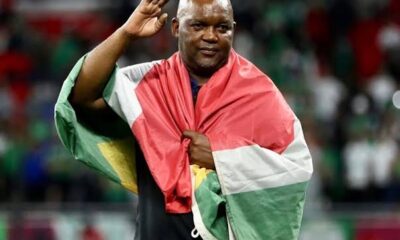

Domestic worker sues Pitso Mosimane, wife following debilitating injuries
Former Mamelodi Sundowns of South Africa and Al Ahli of Egypt coach, Pitso Mosimane, and his wife, Moira Tlhagale, have...
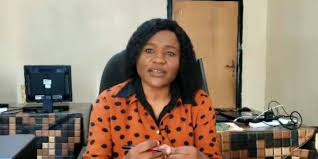

Media polarisation blamed for biased coverage, civil society leader calls for mindset shift
Chama Mwansa, Executive Director of the Chandarika Women and Youths Foundation, has attributed media biases to the similarities in coverage...


Nigeria: 118 prison inmates escape after rainstorm destroys facility
At least 118 inmates of the Medium Security Custodial Centre in Suleja, Niger State, in northern Nigeria, have reportedly escaped...


Tanzania’s auto-tech startup Spana is simplifying car maintenance— CEO
Tanzania’s auto-tech startup, Spana, has developed a mobile application for a bouquet of automobile services, enabling individual car owners and...


Nollywood thrown into mourning as another veteran actor Zulu Adigwe passes on
The Nigerian movie industry, popularly known as Nollywood, has once again been thrown into mourning with the death of veteran...


Zambian FA boss, Gen.Sec arrested over alleged laundering of K341,902
President of the Football Association of Zambia (FAZ), Andrew Kamanga, has been arrested along with the Secretary-General and two other...
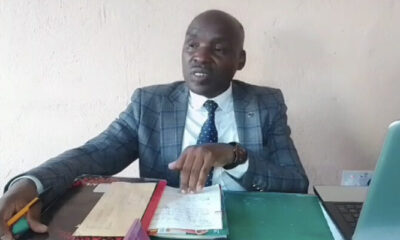

Luapula businessman, Munsanje, reflects on media freedoms and freedom of expression
As stakeholder engagement intensifies regarding the ongoing project to amplify voices on media freedom, freedom of expression, and digital rights,...
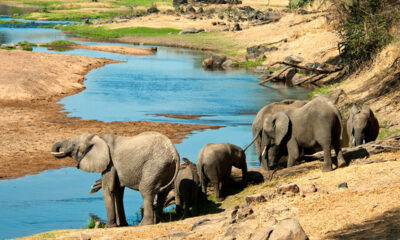

World Bank stops tourism fund to Tanzania’s Ruaha park. Here’s why
A spokesperson for the World Bank said on Wednesday that the lender had stopped all new payments from a $150...
Trending
-
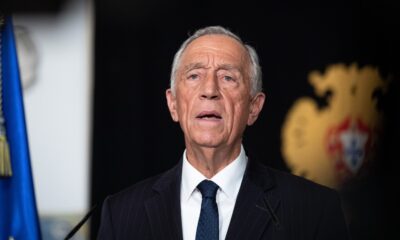
 Musings From Abroad2 days ago
Musings From Abroad2 days agoPresident de Sousa insists Portugal must ‘pay costs’ of slavery, colonial crimes
-

 Tech1 day ago
Tech1 day agoTanzania’s auto-tech startup Spana is simplifying car maintenance— CEO
-
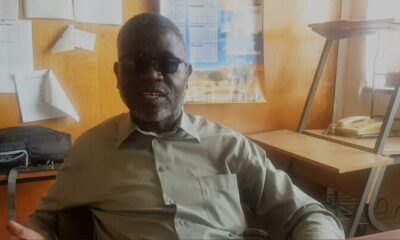
 Politics2 days ago
Politics2 days agoDigital Rights: Policy enthusiast, Jere, advocates self-regulation as alternative to govt regulations
-

 Culture1 day ago
Culture1 day agoNollywood thrown into mourning as another veteran actor Zulu Adigwe passes on


